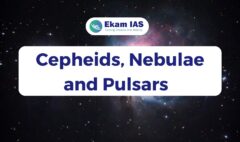Private Members Bill
December 23, 2022 2022-12-23 15:35Private Members Bill
- Opposition members protested the introduction of a private member’s Bill on the repeal of The Places of Worship (Special Provisions) Act, 1991 in Rajya Sabha.
Private Members Bill :
- There are two kinds of bills that are introduced in parliament for the legislative procedure: Public and Private Bills.
- Public Bills are called government bills whereas private bills are called private members’ bill.
- Any Member of Parliament (MP) who is not a minister is referred to as a private member.
- The purpose of private member’s bill is to draw the government’s attention to what individual MPs see as issues and gaps in the existing legal framework, which require legislative intervention.
- Thus it mostly reflects the stand of the opposition party on public matters.
- Its drafting is the responsibility of the member concerned.
- The Member must give at least a month’s notice before the Bill can be listed for introduction.
- Members of Parliament of both the ruling party as well as the opposition can introduce a Private Member Bill.
- The Private Member bill, in order to become an act, must be passed in both the houses.
- Once passed in both houses, Presidential assent is also mandatory for the bill to become an Act.
- Such Bills can be introduced and discussed only on Fridays.
- 14 private member’s bills — five of which were introduced in Rajya Sabha — have become law so far.
- The last time a private member’s bill was passed by both Houses was in 1970.
- It was the Supreme Court (Enlargement of Criminal Appellate Jurisdiction) Bill, 1968.
- President enjoys absolute Veto in Private Bill and not in Government Bill.
- Absolute Veto – President declares that he withholds assent to a bill. Such a bill never becomes an Act.
| GOVERNMENT BILL | PRIVATE MEMBERS’ BILL | ||
|
1. |
It is introduced in the Parliament by a Minister. |
1. | It is introduced by any member of Parliament other than a Minister. |
| 2. | It reflects of the policies of the Government (ruling party). | 2. | It reflects the stand of opposition party on public matter. |
| 3. | It has greater chance to be approved by the Parliament. | 3. | It has lesser chance to be approved by the Parliament. |
| 4. | Its rejection by the House amounts to the expression of want of confidence in the Government and may lead to its resignation. | 4. | Its rejection by the House has no such implication. |
| 5. | Its introduction in the House requires seven days’ notice. | 5. | Its introduction in the House requires one month’s notice. |
| 6. |
It is drafted by the concerned department in consultation with the law department. |
6. | Its drafting is the responsibility of the member concerned. |
The Places of Worship (Special Provisions) Act, 1991:
- The 1991 law was enacted to freeze the status of all places of worship in the country as on August 15, 1947 but an exception was made to keep the Babri Masjid-Ramjanmabhoomi dispute out of its ambit.
Model Question
Q. Consider the following statements :
- A Private Members Bill are bills introduced by the MPs from the opposition party.
- As of now, no Private Members Bill have passed in the Parliament.
Which of the statements given above is /are correct?
(a) 1 only
(b) 2 only
(c) Both 1 and 2
(d) Neither 1 nor 2
Answer : D
To UPSC-standard MCQs, join our Telegram Channel.
To get years of subjectwise-segregated newspaper articles, join our subjectwise Telegram Channels.
Join our 140k+ YouTube community to watch free classes on various UPSC related topics.
Follow us on Instagram for UPSC updates.
Click here to read more UPSC Current Affairs.
Ekam IAS is the oldest online IAS institute in Kerala. We’ve years of experience in mentoring and teaching students all over the nation, helping them achieve their UPSC-dream through the right guidance, strategy, and precise content. Join Ekam IAS and turn your UPSC-dream into reality.
To learn customizable preparation strategies, book an appointment with our UPSC-expert. Book Now.







